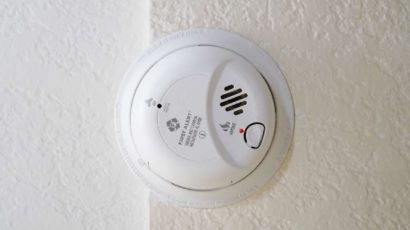Posted by Dr Michelle Wright
Heart attacks: do men and women experience different symptoms? In this week’s Health Matters, Dr Michelle explains all.
What is Cardiovascular Disease?
Cardiovascular disease is the term used to describe diseases of the heart and blood vessels in the body. The cardiovascular diseases are largely caused by fatty deposits (known as atheroma) that can build up and cause blockage of blood vessels. If this happens in the artery blood vessels of the heart, it can lead to a heart attack and if it happens in the artery blood vessels in the brain, it can lead to a stroke. Cardiovascular disease is the world’s biggest killer. According to the World Health Organisation, 17.5 million people die from it each year. That accounts for around a third of all deaths worldwide.
Talking about heart attacks specifically, I’m often asked about how common heart attacks are in women compared to men and also whether there’s a difference in heart attack symptoms between men and for women. Generally in the media, it’s usually men who are portrayed as the ones having the heart attacks. It’s true that heart attacks are more common in men than women and men tend to get them earlier in life…..but women can have heart attacks too. If you look at the stats, heart attacks actually kill more women each year than breast cancer does.
What are the classic symptoms of a heart attack?
In terms of heart attack symptoms, everyone thinks of the classic symptom of a heart attack as chest pain. This tends to be central chest pain that people describe as crushing, like a strong pressure right in the middle of their chest.
The pain may travel up to the neck or jaw – generally on the left side – and also down the left arm. Sometimes, both arms can be affected.
Classically the person feels short of breath as well and they may feel nauseous or start vomiting. They break out in a cold sweat and also feel dizzy or lightheaded.
Do symptoms differ for women?
But what about women – is there a difference? Well, women can experience these typical symptoms that I’ve just described. However, women are more likely than men to have what we would call ‘atypical’ heart attack symptoms.
This means that they may not have so much in the way of chest pain. Arm pain may be the main feature, or sometimes upper abdominal pain. Shortness of breath may also be more prominent as well as the other symptoms of nausea and vomiting. Anxiety, disturbed sleep and feeling extremely tired over the previous few days are other symptoms that women who have had a heart attack tend to report.
The bottom line is that regardless of your gender, if you experience any of the symptoms that I’ve just described and they’re not going away, then it could possibly be a heart attack. Don’t ignore it. Get yourself checked out.
This will usually mean calling 144 for an ambulance in Switzerland. If it does turn out to be a heart attack, the sooner you get help, the more likely you are to fully recover.
Prevention is better than cure
And as always, prevention is better than cure. Try to tackle any risk factors for cardiovascular disease that you may have right now. Get out and do some physical activity, watch your weight and what you’re eating, quit smoking and drink alcohol sensibly within the recommended limits.
Go and have a check-up with your doctor particularly if you have a family history of heart attack or stroke. Measure your blood pressure and get your sugar and cholesterol levels tested. Talk to your doctor about your individual cardiovascular disease risk. Ask whether there is anything that they would recommend for your personal situation.





